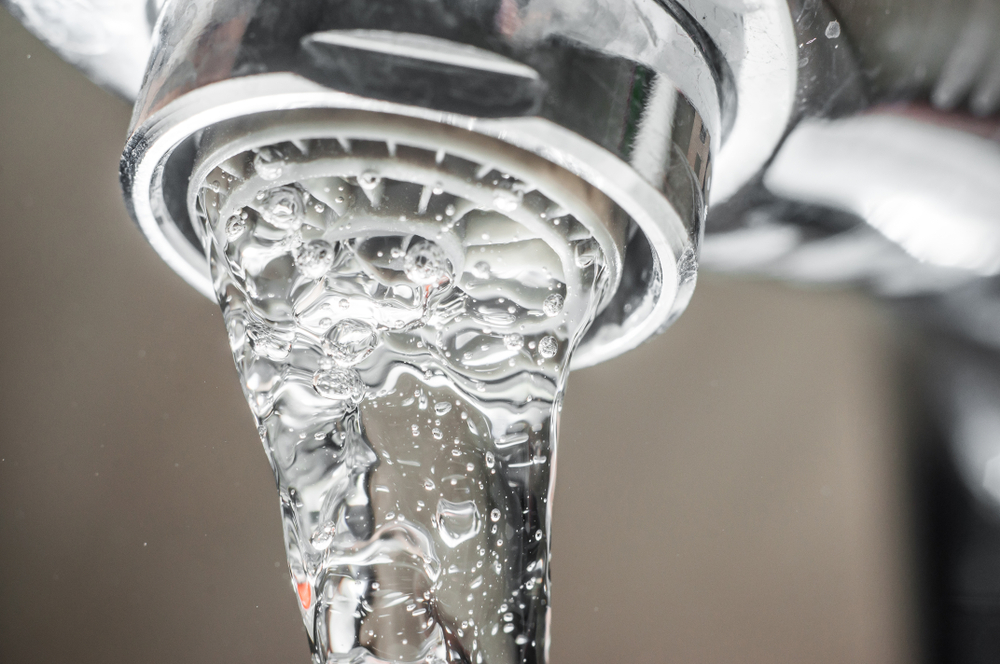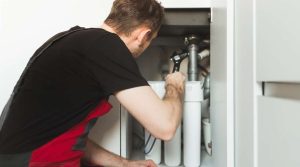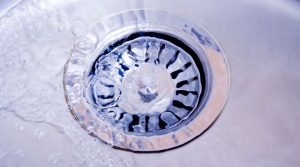Hard water is a common issue faced by numerous homeowners, particularly in areas with high mineral content. Hard water can lead to a multitude of problems, from unsightly mineral deposits on fixtures to decreased efficiency in water heaters and other appliances. One effective solution to address these issues is installing a water softener.
As a full-service plumbing contractor based in Round Rock, TX, we understand the value that a water softener can bring to your home, and we’re here to help you make the most of it. In this ultimate guide, we’ll provide you with essential information on the benefits of water softeners, the installation process, and essential maintenance practices for optimal performance and longevity.
Water softeners remove excess minerals, such as calcium and magnesium, from your home’s water supply, effectively reducing the problems associated with hard water. With a water softener in place, you’ll experience various benefits, including increased efficiency in your water heater and appliances, reduced scale buildup on fixtures, and better quality of water for bathing and cleaning.
To make the most of a water softener, however, it’s important to choose the right system for your needs and to ensure proper installation. There are multiple types of water softeners available, each with unique features and benefits. Understanding these differences will help you make an informed decision and select the best option for your home.
Moreover, just like any other plumbing system, proper maintenance of water softeners is key to prolonging their lifespans and ensuring optimal performance. By carrying out timely maintenance tasks, you can prevent common issues and avoid unexpected breakdowns or inefficiencies.
Our comprehensive guide aims to be your go-to resource for understanding all aspects of water softeners. We’ll cover the types of water softeners, how to select the right one, and the installation process. Furthermore, we’ll provide essential tips for maintaining your water softener system, ensuring it remains efficient, reliable, and long-lasting.
No matter your level of experience with water softeners, our expert guide will equip you with valuable information and insights for making the most of your investment. So, get ready to explore the world of water softeners and learn how to provide your household with better-quality water, prolong the life of your appliances, and maintain the aesthetics of your fixtures.
If you have any questions or need assistance with water softener installation, maintenance, or other plumbing concerns, don’t hesitate to contact the experts at JustUs Plumbing Services. Our team is always here to provide professional advice and services tailored to your needs.
Exploring Different Types of Water Softeners
There are various water softener systems available, each with its unique features and benefits. Understanding these options will help you identify the best softener for your home. The common types of water softeners include:
- Ion Exchange Softeners: These systems use a process called ion exchange to replace calcium and magnesium ions with sodium or potassium ions. Ion exchange softeners consist of a mineral tank filled with resin beads, which trap the hard water minerals and release the softer ions. These systems have proven to be highly efficient and are commonly used in residential settings.
- Salt-Free Softeners: If you’re concerned about adding extra sodium to your water supply, consider a salt-free water softener. These softeners use a potassium-chloride-based alternative to sodium and employ a template-assisted crystallization process, which converts hard water minerals into microscopic crystals. This prevents scale buildup without requiring regeneration cycles like ion exchange systems.
- Magnetic or Electronic Softeners: These systems use a magnetic or electronic field to alter the charge of hard water minerals, making them less likely to stick to surfaces and form scale. They usually need to be installed near the main water line and can be an affordable and low-maintenance option.
Selecting and Sizing Your Water Softener
To choose the most suitable water softener, consider the size, type, and capacity needed for your household. Here are some factors to take into account:
- Water Hardness: Get your water tested to determine its hardness level. The results, usually measured in grains per gallon (gpg), will help you select a softener with the appropriate capacity to handle your hard water.
- Household Water Consumption: Estimate the average daily water usage in your home. Multiply the number of people in your household by the average daily water usage per person (typically 75-100 gallons). This calculation will help you determine the size and capacity of the water softener needed.
- Regeneration Frequency: Determine how often the softener will need to regenerate based on your water hardness and household water consumption. Choose a system with a regeneration cycle that aligns with your preferences and schedule.
Proper Installation and Setup
For the best results and to ensure your warranty remains valid, it’s highly recommended that you hire a professional plumbing contractor, like the team at JustUs Plumbing Services, for water softener installation. The installation process typically involves the following steps:
- Selecting the Location: Choose an easily accessible spot near your main water supply line. The area should be well-ventilated, dry, and have a nearby drain for the water softener’s discharge.
- Preparing the Water Supply: The professional plumber will shut off the main water supply and drain any remaining water from the pipes before connecting the water softener.
- Connecting the System: The softener will be plumbed into your water supply line and connected to the discharge drain. The plumber will ensure all connections are leak-free and properly sealed.
- Adding Salt or Potassium: Depending on the type of softener you’ve chosen, the plumber will add the appropriate amount of salt or potassium to the system.
- Start-up and Adjustments: The plumber will follow the manufacturer’s guidelines to run initial start-up procedures, ensuring the system operates correctly. They will also make necessary adjustments for your specific water conditions and preferences.
Essential Maintenance and Care Tips
Regular maintenance of your water softener ensures its optimal performance and longevity. Here are some essential tips for caring for your system:
- Check Salt Levels: Regularly inspect the salt level in the brine tank and refill as needed. Ideally, the tank should be at least one-third full at all times.
- Clean the Brine Tank: Rinse the brine tank at least once a year to remove any salt buildup or residue.
- Inspect the Control Valve: Check the control valve for any malfunctions or leaks, and address any issues promptly.
- Schedule Professional Maintenance: Have a professional plumber inspect and service your water softener annually, following the manufacturer’s recommendations.
Conclusion
Water softeners can significantly improve your home’s water quality, minimize scale buildup on fixtures, and prolong the life of your appliances. Choosing the right water softener, ensuring proper installation, and regularly maintaining the system are key to reaping these benefits.
Ready to enjoy the benefits of softened water in your Round Rock home? Let the experts at JustUs Plumbing Services help! Contact us today for top-quality water softener installation, repair, and maintenance services. Our experienced team is here to guide you every step of the way, ensuring that you select the best system for your needs and maintain it for optimal performance. Call JustUs Plumbing Services today and experience the difference of softened water in your home!






